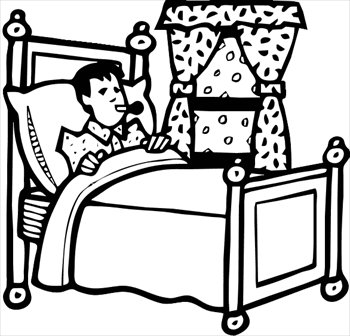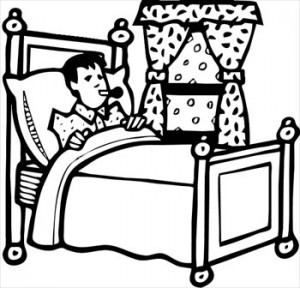
By Matt Rooney | The Save Jersey Blog
In their latest move designed to destroy New Jersey’s job market, Trenton Democrats rammed a private sector sick pay bill (A-2354) through the Assembly Labor Committee Monday.
Frustrated committee member Parker Space (R-Sussex, Warren and Morris), a small businessman when he’s not legislating (and trying to state sane) in the capital city, said it all in the aftermath.
“We can’t keep piling on the already high cost of doing business in the state and wonder why nearly 300,000 people are out of work. Small businesses need flexibility in order to do what they do best – create jobs.”
“Every time the state imposes another mandate, companies react by raising prices, reducing benefits or cutting jobs,” continued Space. “This bill is another intrusion by the government into private sector decision making. Mandates like annual minimum wage increases and Obamacare already make it expensive to run a business.”
The problems with this legislation are LEGION, Save Jerseyans. Some are more obvious than others. We’ve harped on a few biggies before. Several times before.
Other angles referenced by Asm. Space (via his press release), in no particular order:
- “A survey by the Employment Policies Institute last year revealed that employers in Seattle offset their costs to compensate for mandated paid sick days. Sixteen percent raised their prices, 18 percent reduced hours and staff and 17 percent passed on the increase in benefits to their employees or eliminated benefits they once offered.”
- “Surveys in San Francisco and Connecticut (which both mandate paid sick days) revealed similar results.”
- “Previously, the New Jersey Business and Industry Association (NJBIA) noted several concerns with the bill, including the overlap and conflict with several existing leave laws.”
- “BIA stated that the bill allows workers to take sick leave for the treatment and recovery of the employee’s own physical or mental illness, or that of a family member, both of which are acceptable uses of the New Jersey Family Leave Act and/or the federal Family and Medical Leave Act. The bill also provides leave for victims of domestic violence which is already covered by the recently enacted New Jersey Security and Financial Empowerment Act (NJ SAFE Act).”
Still not convinced? As Parker also pointed out, “[s]everal municipalities have enacted earned sick leave ordinances including East Orange, Irvington, Jersey City, Montclair, Newark, Passaic, Paterson, and Trenton.”
Right, so let’s take statewide the policies adopted by near-bankrupted cities which, by the way, our tax dollars prop up through state aid???
It’s Monday and I already need a weekend…




As drafted, this paid sick leave bill would create unprecedented liability for New Jersey’s employers and make NJ the only state where an employee can sue over the paid sick leave requirement.
Under A2354, an employer who does almost anything related to paid sick leave, including simply informing any person about the availability of paid sick leave, gets a 90 day window during which any adverse employment action is presumed to be retaliatory. If an employee files suit during that 90 day window, the burden is on the employer to prove in court that the action was unrelated to the employees’ sick leave-related activity. It is not even clear that reassignments to meet business demands would be lawful under this legislation, since “retaliatory action” is defined to include even an unfavorable work assignments. Under these conditions, employers would have difficulty effectively managing their employees without generating a lawsuit.
The expansive scope of potential liability is compounded by the severe penalties that attach to violations of this legislation. Plaintiffs are entitled to actual damages plus an equal amount of punitive damages, plus attorney fees and court costs. The high cost of litigation, and the financial risk of losing the case, mean many claims would settle immediately, regardless of their merit. These costs are all passed on to consumers.
Disputes over regulatory mandates such as paid sick leave can be resolved more efficiently through agency actions, and more fairly by removing one-sided presumptions. Putting enforcement in the hands of the court may lower the bill’s fiscal note, but it is still a costly policy choice for employers and consumers.
Contact your Assembly members today and let them know that when it comes to the liability risk included in the paid legislation, the cure is worse than the disease.